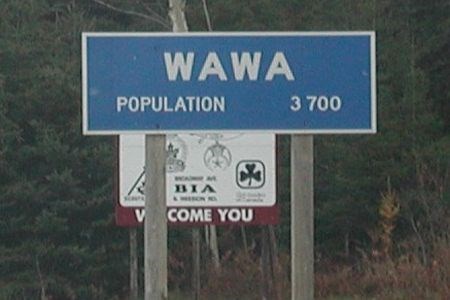If an idled Weyerhaeuser oriented strandboard mill (OSB) in Wawa ever resumes production again, it will be under new ownership.
The Washington state pulp and paper giant has the northeastern Ontario mill on the selling block to anyone that wants to run it as an OSB operation.
Trouble is, there is no Crown wood supply attached to the mill and the North American OSB market is showing no signs of recovery anytime soon.
Wawa was included in a slate of Weyerhaeuser mill closures when wood products markets collapsed in the fall of 2007. The workforce of 148 was laid off.
Company spokesman Wayne Roznowsky said the company had fully intended to reopen the mill when market conditions improved.
With that mind, the company made a business plan submission last year through the Ontario Crown wood supply competition asking for 700,000 cubic metres annually, higher than Weyerhaeuser's previous allocation.
But in mid-December, senior management decided to file an impairment charge with the U.S. Securities Exchange Commission on Wawa and two other closed mills in Minnesota and Alabama.
Essentially, it was a tax consideration to write off these properties at year's end. But it was a signal that these mills were unlikely ever to open again under the Weyerhaeuser banner.
Roznowsky said that move likely “threw uncertainty” into its wood supply submission and the company was notified in February that its application was rejected.
He said Weyerhaeuser was not told what proponents were awarded the mill's traditional wood supply.
In the meantime, four proponents approached Weyerhaeuser about acquiring the mill and operating it as an OSB operation.
Roznowsky said the mill could be profitable under new ownership with a different strategy and business model.
“"We've sold (sawmill) facilities that were not strategic to us that other companies have run successfully."”
Roznowsky said it's difficult to say how long Weyerhaeuser will hang onto the property. “"You get more value if you sell it as an operating facility."”
Only as a last resort would the company start removing and selling off mill equipment components.
"The greatest value for us is to continue to wait and hope that we can work something out,”" he said. "“There's a lot less value to us if it's a salvage. We have no desire to go down that road at this point."”
Still considered a modern mill, the Wawa plant was built in the mid-1990s and operated as Jager Strandboard, before it was sold to MacMillan Bloedel, and then to Weyerhaeuser.
A skeleton staff remains on site providing maintenance and security.
“"It's in a condition that it could be relatively easily restarted,”" said Roznowsky.
When in operation, the mill took in a mix of Crown and private round wood, mostly aspen, and relied heavily on sales to the U.S. homebuilding sector.
Wawa Mayor Linda Nowicki can't see the mill restarting anytime soon without a wood supply.
"“I believe Weyerhaeuser had an excellent chance at getting the wood until they announced they weren't going to run it."”
Nowicki said one of the proponents,– who was anticipating a 2012 startup, told her the mill remains in “pristine condition.”
“"They were astounded there was no wood alloted to this facility and these purchasers were at the table with their banks and the funds ready to go.”"
Nowicki, a retired realtor and businesswomen, believes Wawa's economy is not out of the woods yet. “"I think we're in for difficult times. "It'll be a while before we turn it around.”
She said the arrival of California jet fuel maker Rentech in nearby White River is “excellent news” that should bring some spinoffs to her struggling North Shore community of 3,200, still smarting from the Weyerhaeuser shutdown and the closure of the Algoma Ore Division mine in 1998.
Residents will likely commute to jobs in White River, an hour's drive west on the Trans-Canada Highway, when plant construction begins in 2013, and she anticipates more consumer spending in town.
However, she's not convinced that using trees to make jet fuel is sustainable and is troubled by the premise of the province's wood supply competition.
Nowicki said with 1,200 forestry jobs lost in the last five years due to mill closures in White River, Wawa and Dubreuilville, “"you do not put the 'wood to work', you put the most number of people to work. Being in real estate, there's a concept of highest and best return to get the highest value for the land. To me, it's the same for the trees.”"




